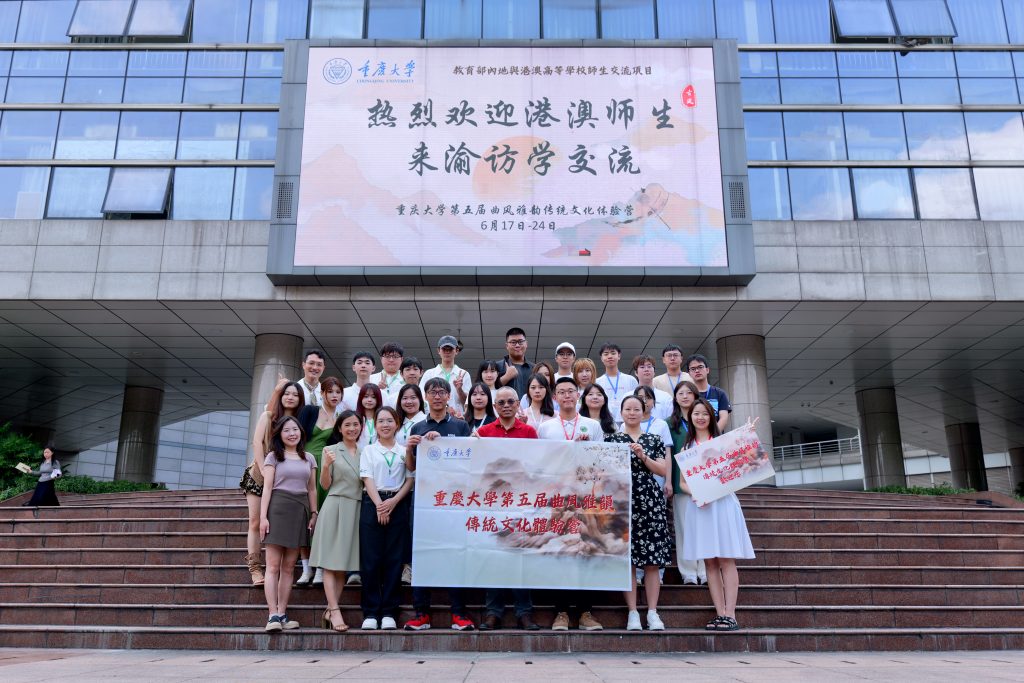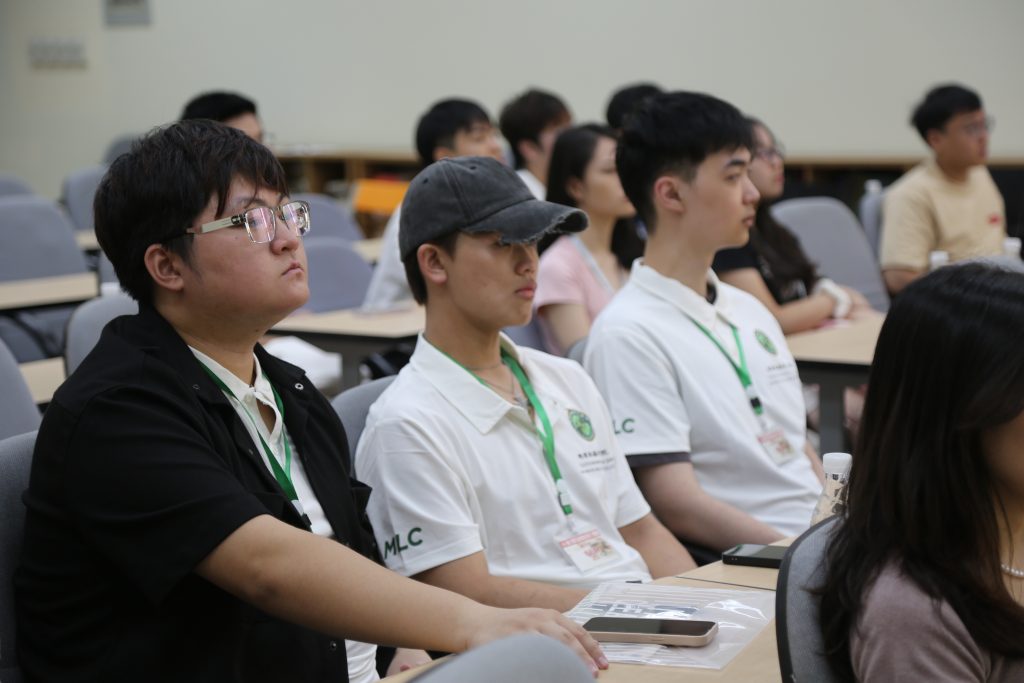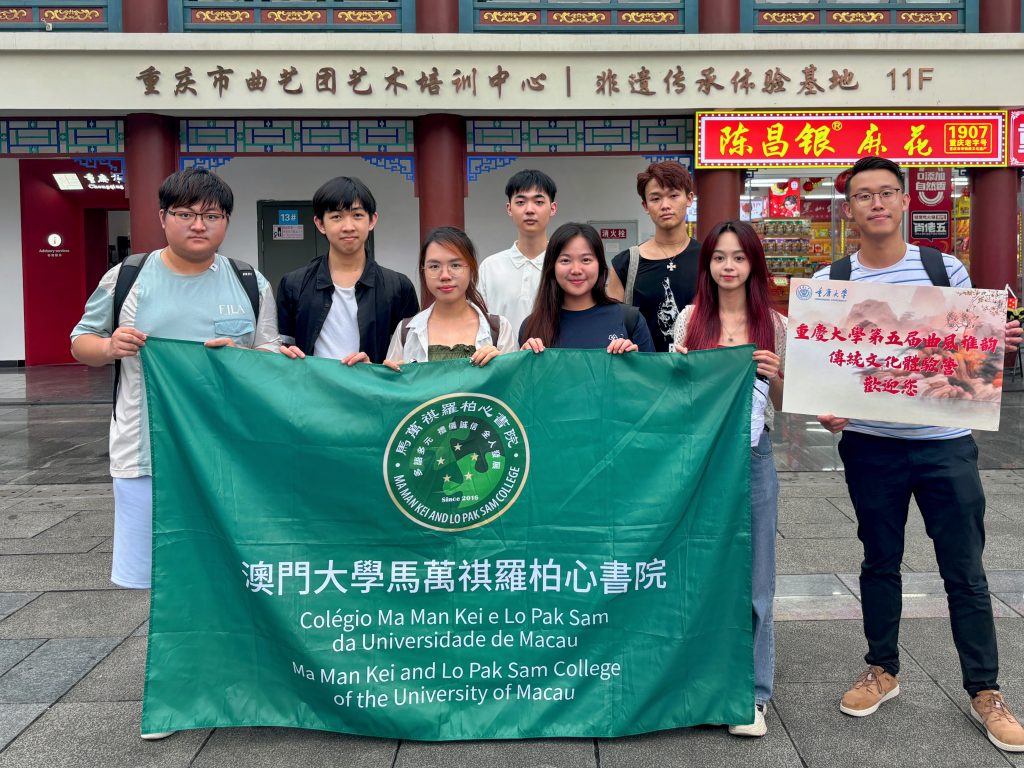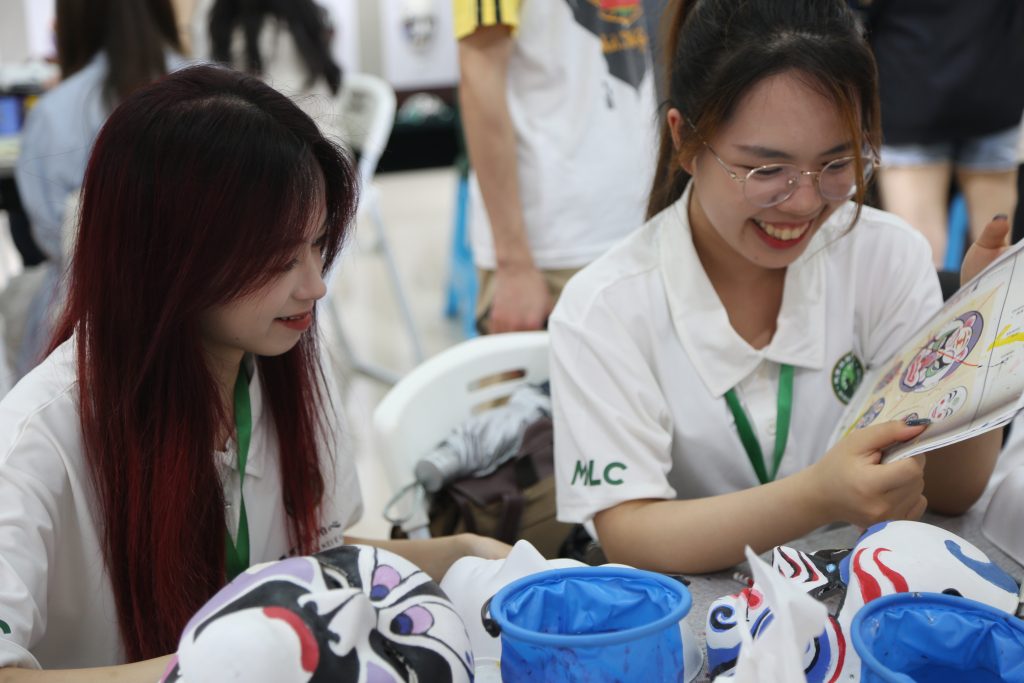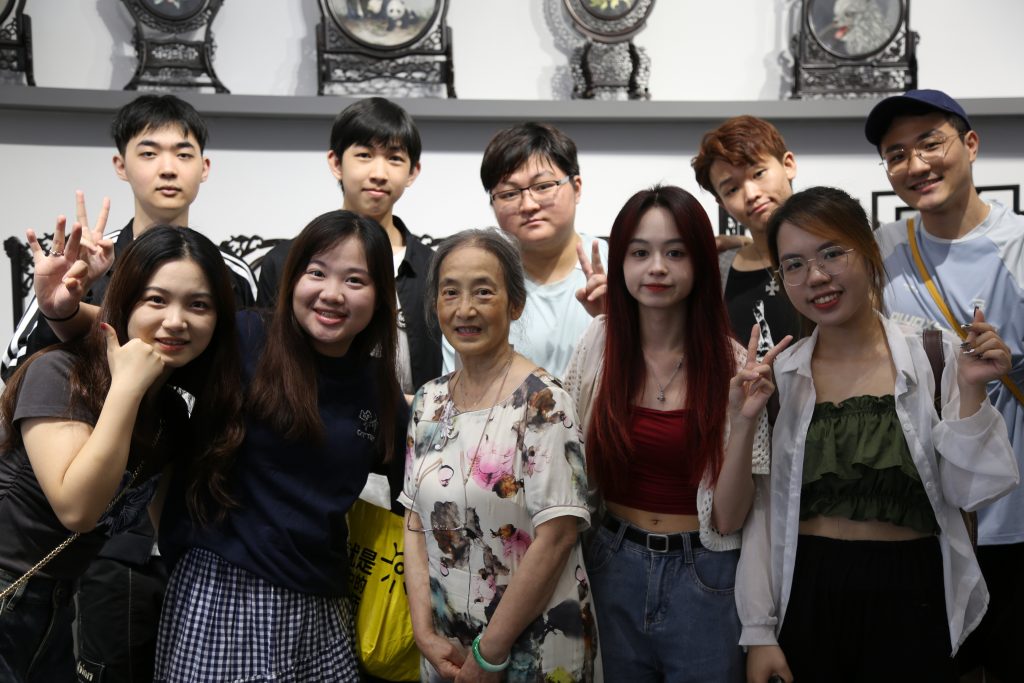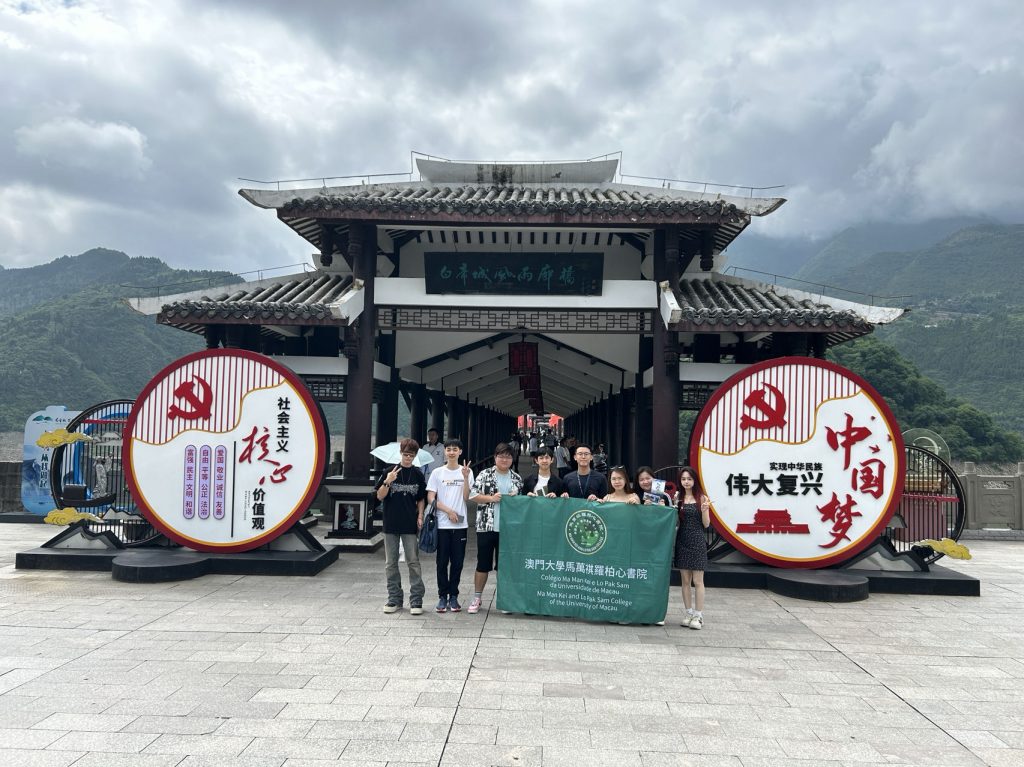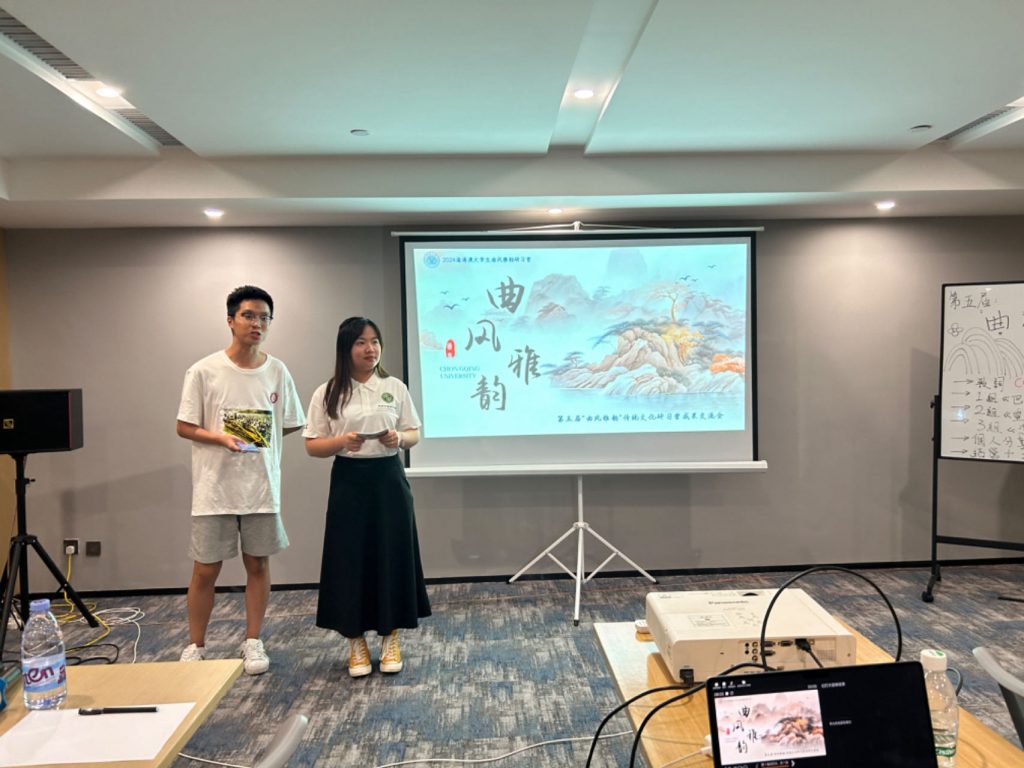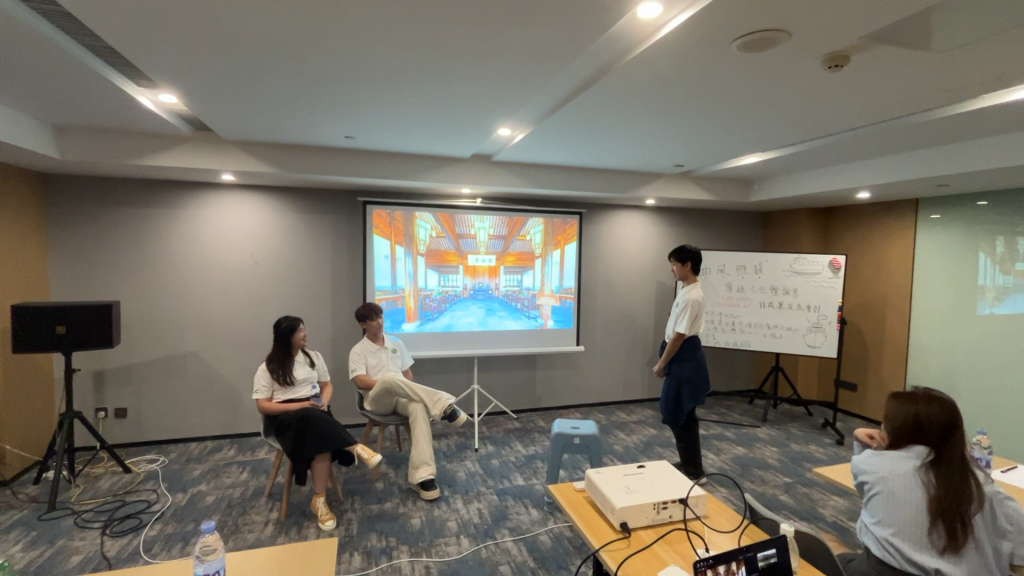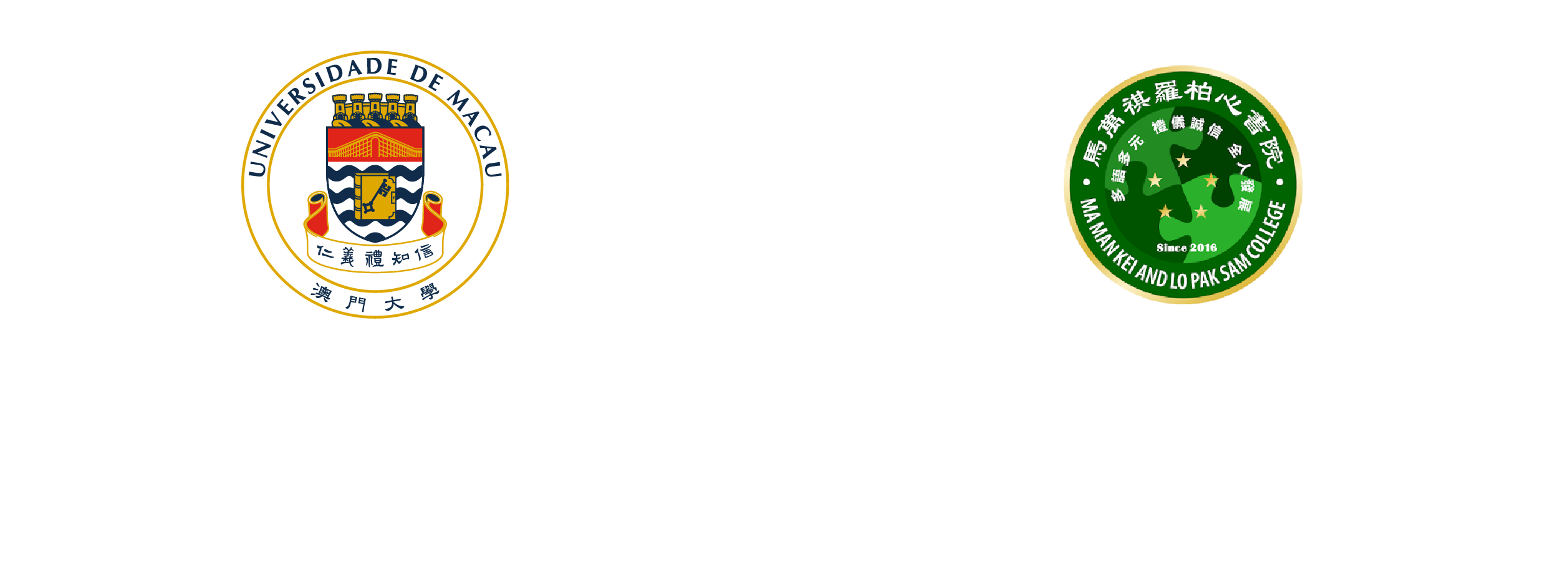To foster friendships among young people from Chongqing, Hong Kong, and Macau, promote the traditional culture of Sichuan opera and the customs of the Bayu region, and enhance the understanding of the development in western China and the Three Gorges area, MLC Resident Fellow Dr. Stanley Chan led a delegation of seven students to Chongqing University (CQU) to participate in the 5th “Qu Feng Ya Yun” Traditional Culture Experience Camp (曲風雅韻文化體驗營). This event was sponsored by the Ministry of Education’s “Exchange Program for Teachers and Students from Mainland China, Hong Kong, and Macau” (Ten Thousand People’s Scheme), and co-organized by CQU, University of Macau (UM), Chinese University of Hong Kong, and Macau Polytechnic University. Through themed seminars, visits, experiential learning, report presentations, and cultural performances, the camp aimed to immerse Hong Kong and Macau youth in traditional culture, especially intangible cultural heritage, and explore the rich historical and cultural landscapes of the Three Gorges, integrating traditional culture into their lives. This event received strong support and guidance from UM’s Rector Prof. Song Yonghua, Vice Rector (Global Affairs) Prof. Rui Paulo de Silva Martins, and Vice Rector (Student Affairs) Prof. Mok Kai Meng, and was successfully held with the assistance of the Director of Global Affairs, Prof. Ruibing Wang.
The MLC delegation of eight people was warmly welcomed by CQU’s Hong Kong, Macau, and Taiwan Affairs Office, along with Associate Professor Chen Xi and his research team from the CQU Meishi Film Academy. Together, they explored Chongqing and the Three Gorges. At the opening ceremony, Deputy Director Ye Lei of the CQU Hong Kong, Macau, and Taiwan Affairs Office extended a warm welcome to the teachers and students from the three universities and introduced the educational characteristics of CQU. MLC’s Stanley Chan, speaking on behalf of the UM, encouraged students to actively participate in the inheritance and innovation of traditional culture and wished for the success of the experience camp. Following this, teachers and students attended a lecture by Prof. Yang Yuzhen from the CQU School of Architecture and Urban Planning, titled “Between Mountains and Rivers: The Evolution of Modern Chongqing City in Historical Maps,” exploring the development history of Chongqing through maps from different periods. During their time in Chongqing, the group visited notable cultural and historical sites such as the Monument to the People’s Heroes and the 2nd Factory Creative Park, and had face-to-face exchanges with representatives of intangible cultural heritage, experiencing traditional crafts such as Shu embroidery, Sichuan opera, Chuan Jiang Hao Zi, and Sichuan Clappers. They also explored the magnificent landscape of the Three Gorges area, experiencing the unique customs at Fengdu Ghost City, the poignant legacy of Liu Bei’s last wishes at White Emperor City, and the joy of the poet Li Bai’s “Setting off from the White Emperor City” at the prospect of a brighter future. In Yichang, they saw the world’s largest hydropower project, the Three Gorges Dam, up close. At Three Gorges University in Yichang, they attended a lecture by Prof. Wang Qiancheng from the College of Literature and Media on “The Splendor of the Yangtze River: A Glimpse into Three Gorges Culture,” which explored poetry and literature centered around the Three Gorges from various dynasties. On the final day of the experience camp, student Fan U Hei served as the host for the summary session, and MLC students combined their report and cultural performance into a short play themed around Chongqing’s intangible cultural heritage, receiving enthusiastic applause from the audience.
Through visits and a variety of enriching activities, students broadened their horizons, increased their knowledge, and deepened their understanding of the history and culture of Chongqing and the Three Gorges. Over eight days, the students built deep friendships with their peers from Chongqing and Hong Kong, gaining a better understanding of each other. After the event, CQU Associate Professor Chen Xi expressed he was deeply impressed by the enthusiasm and energy of the students from the UM, while MLC’s Stanley Chan highly praised the hospitality and sincerity of CQU. Both sides agreed that such activities promote cultural exchanges among youths from mainland China, Hong Kong, and Macau, and expressed their hope to strengthen future cooperation, enhancing the understanding of Chongqing among Hong Kong and Macau youth. This successful event has laid a solid foundation for future academic cooperation between the UM and CQU.
Participants’ Reflections:
Chan Ka Wai: I am especially grateful for the opportunity to participate in the Qu Feng Ya Yun Traditional Culture Experience Camp. The inheritance of intangible cultural heritage, the hard work of the people, and the stories of historical figures have all benefited me greatly.
Ku Lai Wa: Prof. Ding Changfu was very kind and friendly. He not only taught us how to play the Sichuan Clapper but also how to dance.
Leng Hou Meng: What impressed me the most was the tour of the Three Gorges in Wushan. The majestic mountains came into view, with the gorge’s grandeur, lush forests, and towering peaks being awe-inspiring.
Si Tin Iek: The Three Gorges Dam has successfully resisted major floods on the Yangtze River in 2010 and 2018, protecting the middle and lower reaches from these floods. It made me deeply appreciate the wisdom of the Chinese people and feel proud of my country.
Chan Sio Kuan: Overall, this event deepened my understanding and appreciation of the long history and culture of the Chinese nation. I not only experienced the charm of Chinese civilization first-hand but also felt deeply connected as part of this great country.
Lei Tin Chong: During the entire event, I made friends from all over the world, including seniors from the Chinese University of Hong Kong and Macau Polytechnic University. We exchanged ideas and learned from each other, broadening our horizons and deepening our friendships.
Fan U Hei: Besides the rich visiting activities, during the camp, we had the opportunity to have in-depth exchanges with teachers and students from three universities. The seniors were warm and hospitable, accompanying us throughout, which not only gave us a deeper understanding of the local culture but also built bridges for communication, enhancing mutual understanding and friendship.
